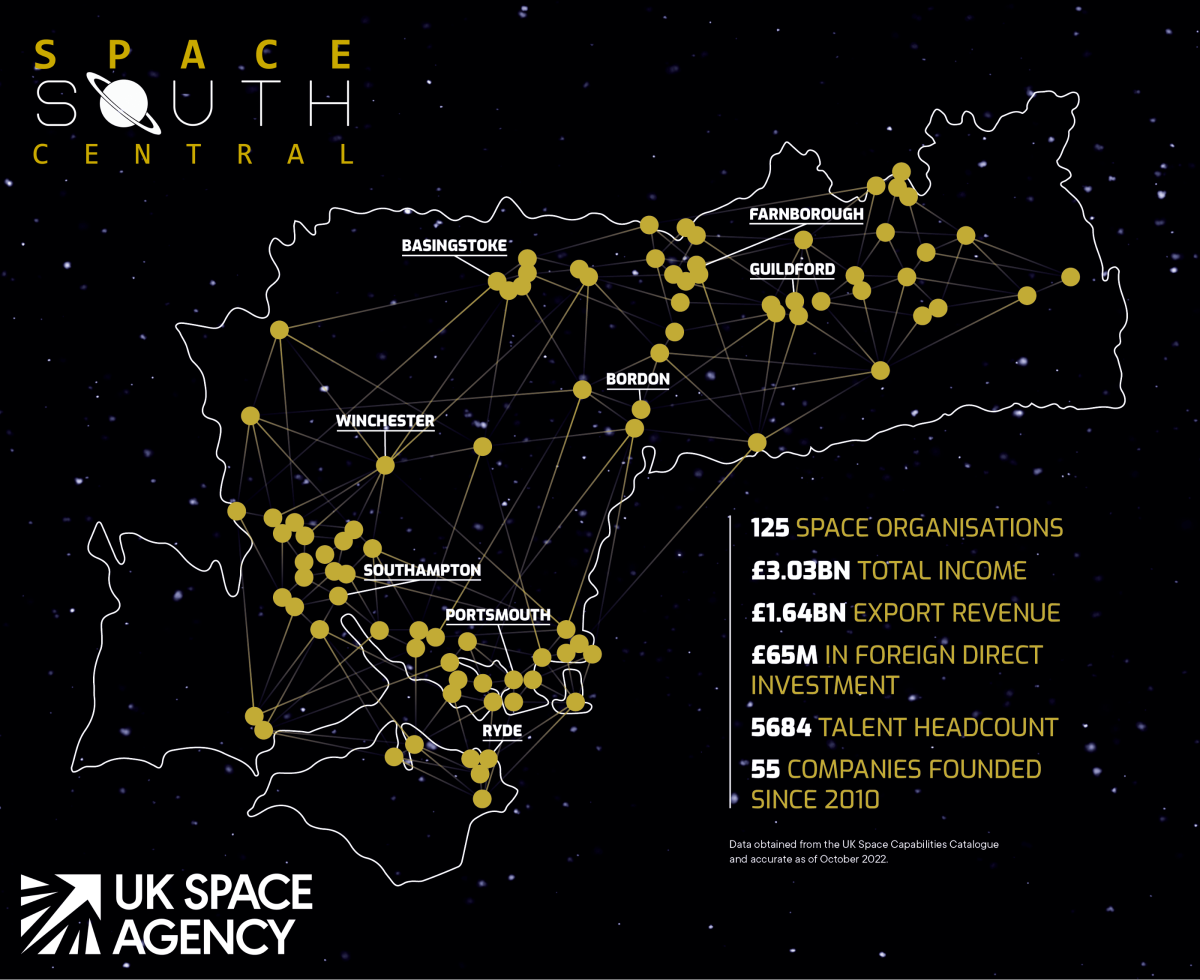
Space scientists and engineers at the University of Surrey have won funding from the UK Space Agency which will help boost the space industry in Surrey and Hampshire, already a leading centre for space-related business with an income of over £3bn from space industries.
Surrey Space Centre’s SpaceCraft proposal, supported by the Space South Central regional programme, will offer training, recruit dedicated space engineers, and provide technical facilities for enterprises to develop and trial space-related technology.
Prof Keith Ryden, professor in space engineering and Head of Surrey Space Centre at the University of Surrey, said:
“The local space industry is strong, which means it’s always hungry for skilled space technicians and engineers. SpaceCraft will help meet these needs, even beyond the graduates and post-grads from space-related areas at Surrey. It will also mean we can open the doors to improved facilities for companies who otherwise struggle to find the specialised maker-spaces and expert engineers they need to develop new products for the space sector.”
Anchored at the Surrey Space Centre, famous for its heritage pioneering small satellites and launching the renowned Surrey Satellite Technology Ltd (SSTL), SpaceCraft will upgrade the Centre’s high quality space engineering facilities and offer access to businesses and colleges, supported by the newly-appointed space engineers. Introductory costs will be minimal, with commercial costs increasing when projects mature, usage increases and companies are more established.
Richard Foster-Turner, COO of Hampshire space business Atout, said:
“Free or low-cost access to facilities and expertise is critical for all small businesses in all sectors, but particularly so in the space sector. The costs of scaling up to space system design, manufacturing and testing are prohibitive, and exacerbated by gaps in the breadth of the UK space sector. SpaceCraft will benefit Atout as we develop our novel propellant reservoir measurement system ‘SMARTTS’ into commercial reality, providing much more accurate information about propellant levels in space vehicles than is currently possible. SpaceCraft will help many small businesses like us in the region, removing barriers, encouraging entry into the space sector and fostering closer interaction and collaboration between industry and academia.”
The engineers will also act as a conduit to better connect entry-level companies to existing specialised assembly and test facilities, not just at the University of Surrey but also at businesses in the region like Airbus, SSTL, In-Space Missions and others.
New training courses in practical space engineering skills, techniques and processes will boost expertise in the region of how to build and test space equipment and instruments. With some courses targeting the local further education sector, SpaceCraft will also enable colleges to introduce practical space skills into their student training.
Dr. Paul Bate, Chief Executive of the UK Space Agency, said “Establishing a network of space clusters and high impact projects will accelerate the development of the thriving space ecosystem the UK needs to realise the full economic potential of space across the UK.
“We’ve been working with the regions to understand their strengths and the needs of their local space economies so that we can back these clusters of excellence to collaborate, grow and thrive.”
Surrey Space Centre bid for the funding as part of the Space South Central cluster, a partnership between industry and academia, designed to accelerate space business growth, foster an environment of innovation, grow the reputation of the south-central region and contribute to national prosperity. Covering Surrey and Hampshire, it is the largest regional space cluster in the UK, encompassing more than 120 organisations and with a collective income of more than £3bn.
In addition to funding SpaceCraft, the UK Space Agency has also awarded £300k to fund key positions at Space South Central, ensuring the cluster keeps the region at the forefront of UK space research, skills and industry. Organisations in the region have contributed an additional £1.3m across both funding initiatives making the total combined programme £2m. This will have an enormous impact on catalysing future growth.


